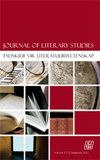《伦敦与无政府的幽灵:切斯特顿的《被星期四当作城市历史的人》
IF 0.1
4区 文学
0 LITERARY THEORY & CRITICISM
引用次数: 0
摘要
本文讨论了G.K.切斯特顿的小说《星期四的人》中如何处理无政府主义者袭击的犯罪威胁。这部小说抓住了公众对恐怖主义关注的一个特殊时刻,并将伦敦描绘成一个犯罪的巢穴,从而成为文化史的一个对象。剧情聚焦于一名潜入恐怖组织的卧底警察。他所描绘的恐怖主义是一种真实的威胁,但切斯特顿既模仿了无政府主义者的抱负,也模仿了执法部门的反恐努力。本文探讨了无政府主义的历史背景,以及城市的历史如何成为小说框架的一部分。本文章由计算机程序翻译,如有差异,请以英文原文为准。
London and the Spectre of Anarchy: Chesterton’s The Man Who Was Thursday as Urban History
Summary This article discusses how the criminal threat of anarchist attack was treated in G.K. Chesterton’s novel, The Man Who Was Thursday. The novel captures a particular moment of public concern about terrorism and serves as an object of cultural history in its depiction of London as a den of crime. The plot focuses on an undercover policeman who infiltrates a terror cell. The kind of terrorism depicted was a real threat, yet Chesterton parodied both the aspirations of anarchists, and the anti-terror efforts of law enforcement. This article considers the historical background of anarchism and how the history of the city is part of the novel’s framework.
求助全文
通过发布文献求助,成功后即可免费获取论文全文。
去求助
来源期刊

Journal of Literary Studies
Multiple-
CiteScore
0.50
自引率
0.00%
发文量
0
期刊介绍:
The Journal of Literary Studies publishes and globally disseminates original and cutting-edge research informed by Literary and Cultural Theory. The Journal is an independent quarterly publication owned and published by the South African Literary Society in partnership with Unisa Press and Taylor & Francis. It is housed and produced in the division Theory of Literature at the University of South Africa and is accredited and subsidised by the South African Department of Higher Education and Training. The aim of the journal is to publish articles and full-length review essays informed by Literary Theory in the General Literary Theory subject area and mostly covering Formalism, New Criticism, Semiotics, Structuralism, Marxism, Poststructuralism, Psychoanalysis, Gender studies, New Historicism, Ecocriticism, Animal Studies, Reception Theory, Comparative Literature, Narrative Theory, Drama Theory, Poetry Theory, and Biography and Autobiography.
 求助内容:
求助内容: 应助结果提醒方式:
应助结果提醒方式:


